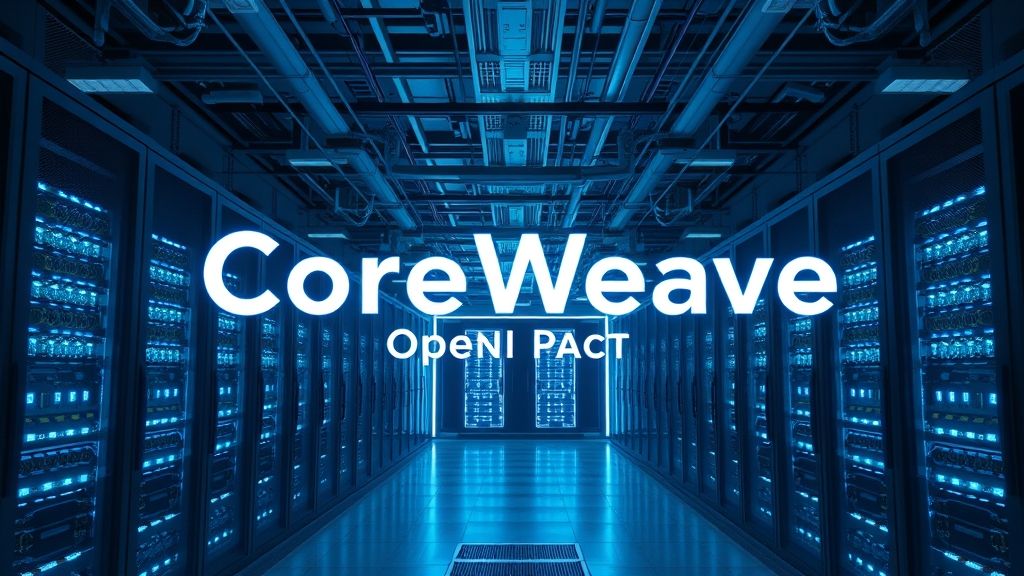CoreWeave expands OpenAI pact with new $6.5B contract as ‘Stargate’ nears 7 GW
CoreWeave has signed a new contract with OpenAI worth up to $6.5 billion, bringing the pair’s 2025 deal value to $22.4 billion. The move accelerates OpenAI’s “Stargate” buildout and signals unrelenting demand for AI compute.
What’s new
- New agreement: $6.5B more in GPU cloud capacity for OpenAI.
- 2025 total: Three CoreWeave-OpenAI deals now sum to $22.4B (March: $11.9B; May: $4B; September: $6.5B).
- Stargate expansion: With newly announced sites via Oracle and SoftBank, planned capacity approaches ~7 GW.
- CoreWeave positioning: CEO Michael Intrator calls this “the quarter of diversification,” as revenue mix expands beyond prior concentration.
Under the hood
- OpenAI’s infrastructure target: at least 10 GW of NVIDIA systems over multiple years.
- NVIDIA intends to invest up to $100B in OpenAI, with first deployments slated on the next‑gen Vera Rubin platform in 2H 2026.
- CoreWeave recently placed an initial $6.3B hardware order with NVIDIA; any unused capacity has a buyback provision.
Why it matters
- For AI builders: More capacity to train and serve frontier models, potentially easing current compute bottlenecks.
- For the market: Reinforces NVIDIA’s role across the stack (chips, systems, and strategic investment) while intensifying scrutiny of “circular” funding across AI infrastructure players.
- For cloud ecosystems: Signals OpenAI’s multi‑partner strategy alongside Microsoft, Oracle, SoftBank, and CoreWeave.
What’s next
- Timeline: First gigawatt under the NVIDIA-OpenAI partnership targets online in the second half of 2026.
- Watchpoints: Regulatory and antitrust attention on deep, intertwined supplier-customer investments; potential power and siting constraints as capacity scales toward 10 GW.
In short, the latest CoreWeave-OpenAI contract is a pragmatic scale-up—less splashy than a new model launch, but pivotal to delivering the compute backbone that next‑gen AI systems will require over the next 12–24 months.
